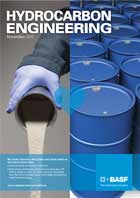Editorial comment
Everything from geopolitical tensions to land disputes can upset the energy alliances formed by countries and a prime example is the numerous Russia-Ukraine gas disputes. It has been suggested that Russia is becoming the country that the EU in particular want to form an alliance with, however, is this the whole story?
Register for free »
Get started now for absolutely FREE, no credit card required.
Russia is home to 75 billion bbls of oil and the world’s largest proven reserves of conventional natural gas so, is it a surprise that it has been said Europe is becoming more reliant on Russia for natural gas as LNG exports are diverted to Asia to fill the hole left by the shutdown of nuclear facilities? This year, Merrill Lynch expect Russian natural gas outputs to reach 675 billion m3, which is good news for Western Europe as its has imported 13% more natural gas from Russia than in previous years. This is particularly due to the decline in Norway’s output and the drop in pipeline imports from Algeria and Libya. The above indicates that Russia is possibly becoming a key ally to Western Europe’s secure supply of gas however, further op-eds and comment pieces that I’ve come across don’t paint the same picture.
Gazprom’s (one of the biggest gas companies in the world and the biggest in Russia) dominance of the European gas market appears to be under threat. The EU is looking to impose an anti monopoly Third Energy Package and unbundling rules that will open the gas market wide to producers and trading companies, therefore upping Gazprom’s competition and throwing a curve ball at its market dominance. Also, in September of last year, Gazprom was put under a 15 month investigation by the European Commission looking in to anti competitive behaviour which has apparently been interpreted as political pressure for the company to reduce prices. This investigation and the push to implement the Third Energy Package do not back the opinion that the EU is putting all its trust for gas supply in Russia.
Yet, the EU isn’t Russia’s only export option. China is reportedly looking to enhance its energy cooperation with the country. Following a meeting of the China-Russia energy cooperation committee in Beijing early last month, Chinese Vice Premier Zhang Gaoli was quoted as saying ‘we hope the two sides can work together to ensure the increase of Russian oil supplies to China, expand cooperation in upstream oil projects and set a refinery joint venture in Tianjin as a pilot project.’ Also, China looks like a good bet for Russian oil and gas exports as the country imported more oil than any other in the world during September according to the US EIA, with net imports of approximately 6.47 million bpd of crude oil during the month also, according to The Financial Times.
Relationships between countries with different trade policies and priorities are always going to be difficult, which I believe is illustrated above, be it rather brief. But will Russia become one of the EU’s greatest allies? That I feel is going to be a case of wait and see.

